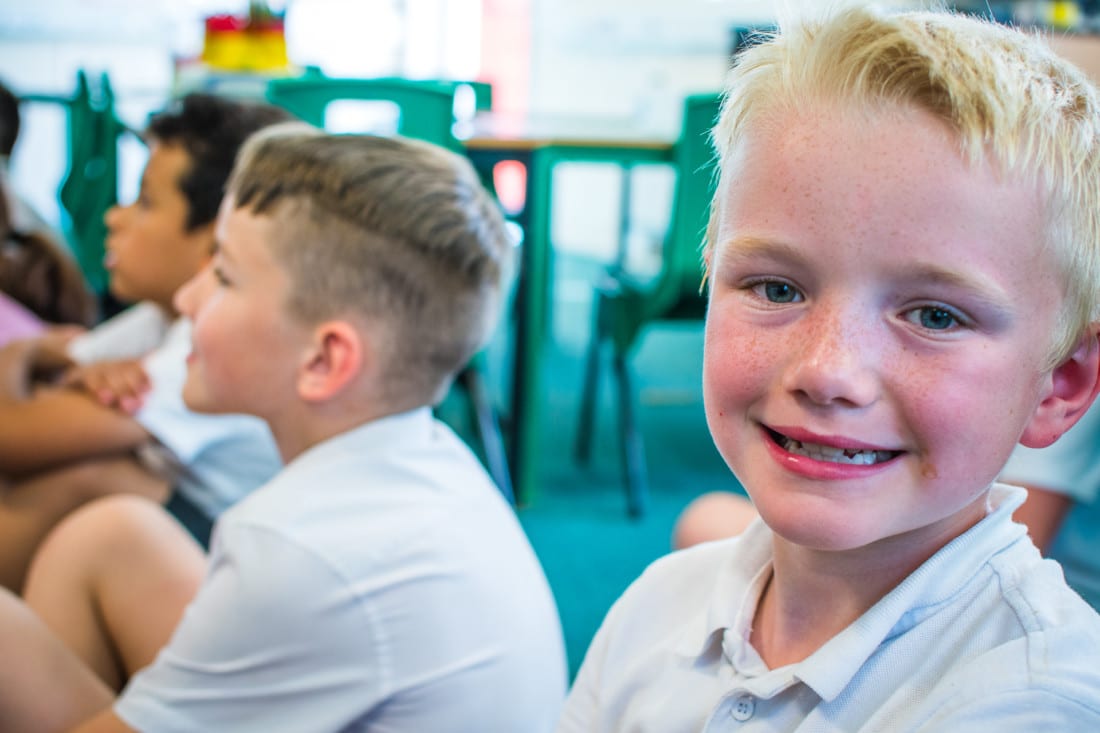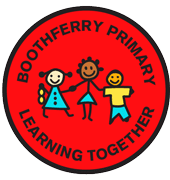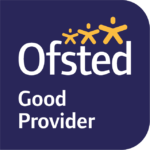PSHE (Personal, Social, Health Education)
Relationships Education, Relationships and Sex Education (RSE) and Health Education (DfE statutory guidance 2019)
At Boothferry School we believe that Personal Social and Health Education (PSHE) and Citizenship are central to our daily school life. They help to give pupils the knowledge, skills and understanding they need to become healthy, independent and responsible members of society. We encourage our pupils to play a positive role in contributing to the life of the school and the wider community. In so doing, we help them develop a sense of self-worth. We teach them how society is organised and governed. We ensure that they experience the process of democracy in school through the school council and the establishment of fair class and school rules. We teach them about rights and responsibilities and as a result they learn to appreciate what it means to be a positive member of our society.
Aims
We aim that through the PSHE curriculum our pupils will:
- know and understand what constitutes a healthy lifestyle
- be aware of safety issues
- understand what makes for good relationships with others
- have respect for others
- be independent and responsible members of the school community
- be positive and active members of a democratic society
- develop self-confidence and self-esteem, and make informed choices regarding personal and social issues
- develop good relationships with other members of the school and the wider community
- learn to respect the differences between people
These aims are clearly in line with our school learning goals of enquiry, resilience, morality, communication, thoughtfulness, co-operation, respect, adaptability, international mindedness plus our overall school aim ‘embracing diversity, building a brighter future together’…
We intend to achieve these PSHE aims through:
- Our school ethos that values the place and contribution of all individuals to the school community and promotes self-respect and respect for others
- Specific direct PSHE teaching
- Circle Time activities and games
- Teaching PSHE and Citizenship through other subject areas such as RE
- Special visitors, activities and events
- Giving pupils opportunities to work in a variety of group settings
To ensure progression and a spiral curriculum, here at Boothferry we use Jigsaw, the mindful approach to PSHE, as our chosen teaching and learning programme and tailor it to our children’s needs. The Jigsaw Programme offers us a comprehensive, carefully thought-through Scheme of Work which brings consistency and progression to our children’s learning in this vital curriculum area. The overview of the programme can be seen below entitled: ‘PSHE Curriculum by Year Group‘. Here you will be able to see an overview of each lesson for your child’s age group. If you would like to view a more detailed version of any lesson please contact your child’s class teacher or a member of the SLT (Mr Sibley, Mr Capewell or Miss Ware).

What do we teach when and who teaches it?
Whole-school approach
Jigsaw covers all areas of PSHE for the primary phase including statutory Relationships and Health Education. The following table gives the learning theme of each of the six Puzzles (units) and these are taught across the school; the learning deepens and broadens every year.
| Term | Puzzle (Unit) | Content |
|---|---|---|
| Autumn 1: | Being Me in My World | Includes understanding my own identity and how I fit in the class, school and global community. Jigsaw Charter established. |
| Autumn 2: | Celebrating Difference | Includes anti-bullying (cyber and homophobic bullying included) and understanding. |
| Spring 1: | Dreams and Goals | Includes goal-setting, aspirations, who do I want to become and what would I like to do for work and to contribute to society. |
| Spring 2: | Healthy Me | Includes drugs and alcohol education, self-esteem and confidence as well as healthy lifestyle choices, sleep, nutrition, rest and exercise. |
| Summer 1: | Relationships | Includes understanding friendship, family and other relationships, conflict resolution and communication skills, bereavement and loss. |
| Summer 2: | Changing Me | Includes Relationship and Sex Education in the context of coping positively with change. |
At Boothferry Primary School we allocate at least 45 minutes of PSHE each week in order to teach the PSHE knowledge and skills in a developmental and age-appropriate way. This is often enhanced in our thematic curriculum as good PSHE underpins lots of other curricular areas such as; assemblies and collective worship, the Boothferry learning goals, praise and reward systems, class charters, house teams, through relationships child to child, adult to child and adult to adult across the school. We aim to ‘live’ what is learnt and apply it to everyday situations in the school community.
Statutory and non-statutory requirements:
Relationships Education
What does the DfE statutory guidance on Relationships Education expect children to know by the time they leave primary school?
Relationships Education in primary schools will cover ‘Families and people who care for me’, ‘Caring friendships’, ‘Respectful relationships’, ‘Online relationships’, and ‘Being safe’.
The expected outcomes for each of these elements can be found by clicking on the ‘Relationships’ puzzle (unit).
It is important to explain that whilst the Relationships Puzzle (unit) in Jigsaw covers most of the statutory Relationships Education, some of the outcomes are also taught elsewhere in Jigsaw e.g. the ‘Celebrating Difference’ Puzzle helps children appreciate that there are many types of family composition and that each is important to the children involved. This holistic approach ensures the learning is reinforced through the year and across the curriculum.
Health Education
What does the DfE statutory guidance on Health Education expect children to know by the time they leave primary school?
Health Education in primary schools will cover ‘Mental wellbeing’, ‘Internet safety and harms’, Physical health and fitness’, Healthy eating’, ‘Drugs, alcohol and tobacco’, ‘Health and prevention’, ‘Basic First Aid’, ‘Changing adolescent body’.
It is important to explain that whilst the ‘Healthy Me’ Puzzle (unit) in Jigsaw covers most of the statutory Health Education, some of the outcomes are taught elsewhere in Jigsaw. For example, emotional and mental health is nurtured every lesson through the ‘Calm me time’, social skills are grown every lesson through the ‘Connect us’ activity and respect is enhanced through the use of the Jigsaw Charter.
Also, teaching children about puberty is now a statutory requirement which sits within the Health Education part of the DfE guidance within the ‘Changing adolescent body’ strand, and in Jigsaw this is taught as part of the ‘Changing Me’ Puzzle (unit).
Relationships and Sex Education (RSE)
The DfE Guidance 2019 (p.23) recommends that all primary schools ‘have a sex education programme tailored to the age and the physical and emotional maturity of the pupils.’ However, ‘Sex Education is not compulsory in primary schools’. (p. 23) Schools are to determine the content of sex education at primary school. Sex education ‘should ensure that both boys and girls are prepared for the changes that adolescence brings and – drawing on knowledge of the human life cycle set out in the national curriculum for science – how a baby is conceived and born’.
The term Relationships and Sex Education – RSE – is used in this policy rather than sex education. This is to stress that our approach goes beyond provision of biological information to also focus on clarifying attitudes and values and developing self-esteem and the skills to manage relationships.
At Boothferry Primary School, we believe children should understand the facts about human reproduction before they leave primary school so they are able to keep themselves safe, healthy (both mentally and physically) and equipped to make informed choices.
We define Sex Education as Relationships and Sex Education – RSE – rather than sex education only. This is to stress that our approach goes beyond provision of biological information to also focus on clarifying attitudes and values and developing self-esteem and the skills to manage relationships.
RSE should help pupils to learn to respect themselves and others by acquiring accurate information, developing skills and forming positive beliefs, values and attitudes. RSE is about the understanding of the importance of marriage for family life, stable and loving relationships, respect, love and care. It is also about the teaching of sex, sexuality and sexual health and to enable pupils to take responsibility for their sexual health and wellbeing.
APPROACH TO TEACHING RELATIONSHIPS AND SEX EDUCATION (RSE) AT OUR SCHOOL
RSE will be taught through:
A) The taught National Curriculum Science Programme of Study;
B) RSE objectives covered within each Key Stage through one of the six PHSE themes in Jigsaw; predominantly in ‘Relationships’ and ‘Changing Me’ – Summer term. However, for it to be embedded and meaningful it should be intertwined with the other units to put in into context. In upper KS2, specific RSE lessons will be taught. The use of the online video resources such as ‘Busy Bodies’ will be used to support teaching about puberty and conception in Year 5 and 6, as advocated by the Humber Teaching NHS Foundation Trust. These materials will be made available for parents and carers to watch pre to lessons being taught;
C) Pastoral support for pupils who experience difficulties;
D) Circle Time discussions and activities;
E) Occasional use of assemblies, story-telling and sharing to support teaching.
“Parents have the right to request that their child be withdrawn from some or all of sex education delivered as part of statutory Relationships and Sex Education” DfmE Guidance p. 17
If you have any concerns regarding the content of the RSE curriculum we invite you to contact in the first instance your child’s class teacher, or a member of the senior management team. We will work in active partnership with parents/carers, value their views and keep them informed about our RSE provision. If a parent/carer has any concerns about the RSE provision, we will take time to address their concerns and allay any fears they may have. If any parents/carers still decide to withdraw their child from non-statutory aspects, we shall work with them and their child to explore possible alternative provision. Please be aware that the science curriculum in all maintained schools also includes content on human development, including reproduction, which there is no right to withdraw from. This also applies to what is part of the Healthy Education strand of the new DfE guidance (changing adolescent body, ages 9-11, Y5/6).
Jigsaw materials are age appropriate and are preparing our pupils for later life in a safe, caring and nurturing environment with trusted adults. All materials will be made available to parents before the start of each half term so they have chance to review and discuss with their child and current class teacher, content will also be shared on our topic overviews at the start of each unit of work.
Guidance Documents
PSHE Curriculum by Year Group
“Senior leaders lead by example, modelling what is expected of all staff. Teachers feel valued and respected.”
“My children are thriving as the school is committed to learning and progression.“
“Thank you for treating my child like your own.“
“The best thing about this school, when I ask my child this question, he said Mrs Emmerson. “
“Senior leaders lead by example, modelling what is expected of all staff. Teachers feel valued and respected.”
“Opening the school doors at 8.40am has made it much easier as it is less crowded.“
“The stimulating learning environment. “
“The headteacher, senior leaders and governors are ambitious for pupils. Their determination has made Boothferry Primary a flourishing and successful school.”
“The after school activities, film nights and discos.“
“I feel the school has advanced with regards to the appropriate curriculum for different age groups.“
“Being part of their learning – it doesn’t just stay in the classroom.”
“The joy of the teachers who greet the children and parents daily.“
“..closeness between all age groups and years.“
“Pupils who speak English as an additional language make rapid progress. Disadvantaged pupils are also supported well to make good,
and sometimes better, progress in reading, writing and mathematics.”
“This school meets our expectations in every way.“
“School leaders are ambitious and highly knowledgeable about teaching and learning.”
“We want to thank you for welcoming my family when we moved here (from Bulgaria).”
“Pupils’ personal development and welfare are outstanding. Pupils thrive and are keen to learn. They know how to look after their
wellbeing and how to keep safe. The school is an inclusive and happy place.”
History day was amazing. Brilliant idea.
“the school gives me advice as a parent so I can help my daughter.“
“The teaching of phonics is a strength and enables pupils to make rapid improvement in their early literacy skills. ”
“The headteacher, deputy headteacher and the assistant headteacher make an effective team. They sustain a culture of continuous i improvement through the school’s vision and specific learning goals, which include resilience, morality and adaptability.”
“School leaders have taken effective action to ensure that pupils make at least good progress from their low starting points in reading,
writing and mathematics in all year groups.”
“Teachers, including those who are new to teaching, have high expectations, and they plan creative lessons that spark pupils’ interest and inspire them to do well.”
“The curriculum is well designed to include a range of exciting themes, visits and visitors to enhance pupils’ learning. Pupils become
confident individuals who are well prepared for the next stage of their education.”
“When ever I have had a problem the staff on the whole have been sympathetic and helpful.“
“My children have come on and made progress socially and academically since joining.“
“Children get off to a strong start in early years. This is due to effective leadership and skilful teaching. The proportion of children reaching a good level of development is improving yearon-year.”
“Leaders and staff have significantly improved the teaching of reading. Pupils are enthusiastic and frequent readers.”
Boothferry at Young Voices…..Just WOW! What an experience.”
“My kids love the fruit on the snack table.“
“My children are developing very well in school.“
“We can only applaud the ingenuity & continued compassion of the young people at Boothferry.”
“The photography club is brilliant, I think introducing things like this is brilliant for the children.“
“The choice to do a traditional nativity was great !.“
“The friendly atmosphere, the safe environment & the teachers’ encouragement.”
“Leaders use funding well to ensure that pupils with special educational needs and/or disabilities (SEND) make strong progress from their different starting points.”
“Open weeks in Foundation allows parents to enjoy school as much as our children.“
“You can approach any member of staff and they help you.“
“Miss Pulleyn is fantastic“
“My son’s teacher is creative, enthusiastic and genuinely cares about him as an individual .“
“the amount of effort put in by the teachers to make topics interesting is brilliant.“
“The Head teacher and deputy are fab, they join in everything.”
“I love seeing school events on Twitter.“
“The bike loan scheme.My family also like the school bank.“
“I love the fact that senior members of staff know the names of the children.“


